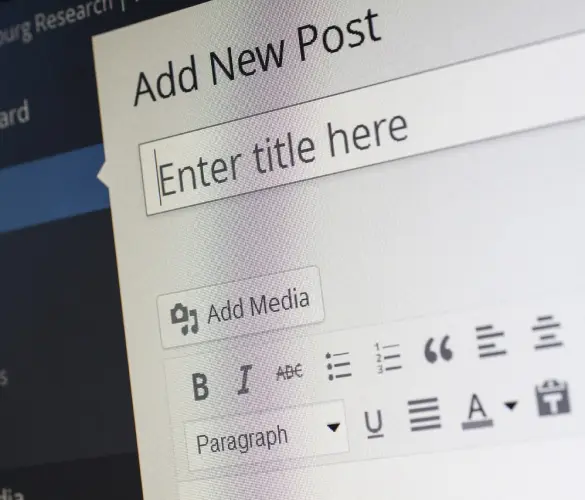In this article, we will explore the numbers behind outsourcing versus hiring in-house developers. For the sake of this analysis, we are leaving aside personal and cultural factors and focusing purely on the financials. However, it’s important to note that in a more in-depth analysis, there are additional factors to consider.
For example, while you might be able to fire an in-house developer if there isn’t enough work, this isn’t necessarily a sustainable or ideal business model. Also, hiring an agency to integrate with your team isn’t exactly the same as having an in-house developer.
There are benefits to working with an outsourcing team, such as bringing new processes, fresh perspectives, and the expertise of a dedicated team. However, it’s also challenging to make them feel like a true part of your team. The key is to focus on making them a valuable partner, integrating them into your workflow as much as possible.
Now, let’s dig into the numbers.
Key Takeaways
- Hiring and maintaining an experienced WordPress developer costs between $99,500 and $114,800 per year when considering salaries, benefits, and overhead. That’s $51.82 to $59.79 per hour.
- Hiring a WordPress development agency costs anywhere from $15 to $250 per hour, but you should aim for the $50 to $80 per hour range.
- The main benefit of hiring agencies over in-house developers is that agencies are more affordable in the short term and help you complete projects with a very specific scope and duration (usually less than a year) faster.
- In-house developers are likely preferable if you need long-term, ongoing WordPress development from a developer who knows how your operations work.
The Costs of In-House WordPress Development
First, let’s break down the costs of having an in-house developer. For simplicity, let’s use an example of a mid-level WordPress developer (often referred to as a “mid” or “SSR” level).
Salary and Benefits
Data from multiple sources indicate that WordPress developers earn a wide range of salaries depending on their experience, specific roles, and other factors. As a result, they can earn anywhere from $37,500 per year to $150,000 per year.
These salaries correspond to hourly rates of $19.53 to $78.12 per hour.
Naturally, experience is one of the most significant factors, so developers with more experience will earn closer to the higher end of the range. An analysis by HubSpot indicates that American WordPress developers can expect the following average salaries at different stages of their careers:
- Junior WordPress developer (under 2 years of experience): $40,000 per year or $20.8 per hour.
- Average WordPress developer (3-5 years): $70,000 per year or $36.45 per hour.
- Expert WordPress developer (over 5 years): $150,000 per year or $78.12 per hour.
However, it’s also important to consider benefits, which, combined with the salary, can add up to 1.25 to 1.4 times the base salary.
This means that if the base salary for an average WordPress developer in the U.S. is $70,000 per year, the total cost of keeping that developer on the payroll can be $87,500 to $98,000 per year.
In hourly rates, it corresponds to $45.57 to $51.04 per hour.
Overhead Costs
In addition to salary and benefits, you also need to account for overhead.
Overhead refers to costs that aren’t directly related to project expenses, such as office space, equipment, software subscriptions, the salaries of workers who do not participate in projects that bring revenue (marketing, administrative, etc.), and more.
Overhead costs vary greatly between companies, but a software company with 5 to 10 developers on payroll could spend around $10,000 per month on overhead. The overhead per employee could be approximately $1,000 to $1,400 per month.
Meaning every employee costs around $12,000 to $16,800 per year on overhead, in addition to their salary.
Considering overhead, salary, and benefits, an average WordPress developer with around 3 years of experience could cost between $99,500 and $114,800 per year. That’s $51.82 to $59.79 per hour.
Resource Occupancy
Finally, consider resource occupancy. Occupancy refers to the percentage of time the developer is actually productive and working on billable tasks.
If your in-house developer is at 90% occupancy, they are only working productively 90% of the time, while the remaining 10% is spent on things like meetings, training, or administrative tasks.
This lowers the value you’re getting from the developer’s salary.
For example, if your developers work at 90% occupancy, then instead of being productive for 160 hours per month, they’re productive for 144 hours per month.
Using the $36.45 per hour an average WordPress developer earns, if they work for 160 per month, you pay them $5,832 per month. But if they are productive for 90% of the time while still charging the same salary, you end up paying the following hourly rate:
- $5,832 / 144 hours = $40,5 per hour
The lower the occupancy percentage, the more you actually end up paying per productive hour to your developers.
The Cost of Outsourcing to an Agency
Outsourcing to an agency is a different structure. While the cost of your outsourced WordPress development still comes down to an hourly rate, you’re not hiring a full-time in-house developer.
Instead, you pay only for the hours you need, and everyone goes their separate ways after the project is done.
Agency Hourly Rate
The main difference between hiring an in-house developer and outsourcing your WordPress development to an agency is that with an agency, you only pay the hourly rate and nothing else.
Which leads to the question, how much do WordPress agencies charge for their services?
The hourly rate of outsourcing WordPress development varies widely depending on factors like:
- The agency’s location. Asia, Africa, and Latin America tend to be affordable compared to the rest of the world.
- The experience of the team involved.
- The agency’s targeted audience. For example, some agencies aim for low to mid-budget projects, while others have a hard minimum for their projects, such as $5,000.
As a result, the hourly rate can range from $15 to $250 per hour for worldwide WordPress agencies. However, many excellent WordPress agencies operate in the $50 to $80 per hour range.
This is the range we would recommend you seeking since it provides the best balance between affordability and quality. While some regions of the world have relatively low wages compared to the U.S., Canada, Western Europe, etc., experienced developers still require high local wages.
Use our ROI calculator to save on outsourced WordPress devs
Covering these wages would be extremely challenging while charging $15 to $40 per hour to clients. As a result, seeking companies who charge around $50 to $80 per hour would ensure that the agency’s developers are experienced and productive.
While this range is similar to that of hiring and maintaining an experienced WordPress developer on long-term payroll, you should consider that you do not pay for benefits or overhead. Furthermore, you only hire them for as long as you need them.
The Monthly Cost of Outsourcing WordPress Development
Since outsourced WordPress teams are not hired permanently, you will usually calculate costs in terms of months rather than years. Which leads us to consider how long outsourced WordPress development projects take.
In our experience, most WordPress development projects for our clients take 1 to 3 months. However, large and complex websites can take 6 months or more to complete. On the other hand, some projects can also be quite short, lasting only a few weeks.
Considering these ranges, here’s what you can expect to pay for outsourced WordPress development within the $50 to $80 per hour range.
| Hourly rate ($) | Project cost, assuming 160 hours per month ($) | ||
| 1 month | 3 months | 6 months | |
| 50 | 8,000 | 16,000 | 24,000 |
| 60 | 9,600 | 19,200 | 28,800 |
| 70 | 11,200 | 22,400 | 33,600 |
| 80 | 12,800 | 26,600 | 38,400 |
These numbers give you an idea of what to expect from WordPress agencies when planning to outsource your site’s development.
In-House vs Outsourcing WordPress Development Costs
Since agencies often collaborate with you for months rather than years, as in-house developers may be expected to, it can be hard to compare the costs of hiring each.
Still, the big savings you may expect from outsourcing WordPress development are visible when you compare the cost of an outsourced project versus maintaining a WordPress developer on payroll for a year or more.
For example, a WordPress developer with several years of experience can cost between $99,500 and $114,800 per year ($51.82 – $59.79 per hour), considering salary, benefits, and overhead.
On the other hand, hiring a WordPress development agency for 4 months at $60 per hour costs $38,400 for the entire project.
Additionally, there’s the matter of occupancy. With in-house developers, you always pay 100% of their salary whether they’re working on a project or not. With outsourced WordPress agencies, you pay only for the agreed upon hours in the contract, so you’re getting closer to 100% occupancy.
Ultimately, the real financial benefit of WordPress agencies is that you receive immediate, highly qualified support and hire it only for as long as you need to, leading to potential savings of dozens of thousands of dollars per year compared to maintaining developers on payroll.
When to Outsource Your WordPress Development to an Agency?
In general, it makes the most sense to outsource your WordPress development to an agency when web development is not part of your core operations, and you need a project done within a very specific scope (generally lasting 1 year or less).
For example, if you need to refresh your website’s design and the entire project will take 3 months, it makes perfect sense to outsource development. Going through the process of hiring someone, onboarding them, and giving them the time necessary to become productive would take longer and cost more.
Another case where outsourcing makes sense is if you have a creative agency that focuses on communication and design but doesn’t have a development team.
There’s an entire industry of creative agencies that outsource WordPress development duties to meet their clients’ needs but provide only design and communications services the rest of the time.
On the other hand, if web development will be a core element of your operations and will continue to be for years to come, it makes more sense to hire an in-house developer.
While it will be costlier in the short term due to onboarding and other factors, having a web developer that you will get daily value out of and have full control over is more valuable in the long term.
Is Outsourcing WordPress Development the Right Choice for You?
Outsourcing WordPress development is the right choice when:
- You don’t have a development team and won’t need one long-term.
- Your project has a very specific scope and duration, such as creating and developing a new theme for your site within a 4-month period.
The main benefit of outsourcing is that it saves you money compared to hiring a long-term web developer who comes with overhead costs, a salary, and benefits. In these cases, outsourcing keeps your costs down while still getting access to highly skilled developers.
However, in-house developers are the right choice if web development will be a core element of your operations for years to come.
Ultimately, the choice depends on your business’s unique needs and priorities, so carefully explore your team’s capabilities and needs when deciding whether to outsource your site’s WordPress development.
If you found this post useful, read our blog and developer resources for more insights and guides!
Artículos relacionados

Perspectivas de la Industria / 5 min de lectura
Perspectivas de la Industria / 5 min de lectura
Cuándo la inteligencia artificial no es suficiente en el desarrollo WordPress
La inteligencia artificial ha mejorado muchos aspectos del desarrollo de software. En mi experiencia desarrollando sitios de WordPress, herramientas como ChatGPT y Copilot han facilitado más que nunca la generación…
Leer más
Perspectivas de la Industria / 18 min de lectura
Perspectivas de la Industria / 18 min de lectura
¿WordPress está muriendo en 2024?
La pregunta, "¿Está muriendo WordPress?" parece ser tan vieja como el propio WordPress, ¿pero tiene algo de cierto? Si estás considerando si deberías usar WordPress en 2024 y más allá,…
Leer más
Perspectivas de la Industria / 15 min de lectura
Perspectivas de la Industria / 15 min de lectura
Pros y contras de usar WordPress para construir tu sitio
¿Estás pensando en usar WordPress para construir tu sitio web? Si es así, debés explorar sus pros y contras para tomar la decisión más informada al elegir un sistema de…
Leer más
Perspectivas de la Industria / 26 min de lectura
Perspectivas de la Industria / 26 min de lectura
ClickFunnels vs WordPress: ¿Cuál es mejor en 2024?
Existen muchas soluciones para crear sitios, blogs, tiendas de comercio electrónico y embudos de ventas. Si querés crear un mercado de ecommerce o un sitio de membresías que convierta gracias…
Leer más
Perspectivas de la Industria / 14 min de lectura
Perspectivas de la Industria / 14 min de lectura
¿Por qué WordPress es tan popular en 2024? 12 razones principales
WordPress es el sistema de gestión de contenidos (CMS) más popular del mundo, impulsando casi la mitad de todos los sitios. Aunque fue creado originalmente como una herramienta para blogs,…
Leer más
